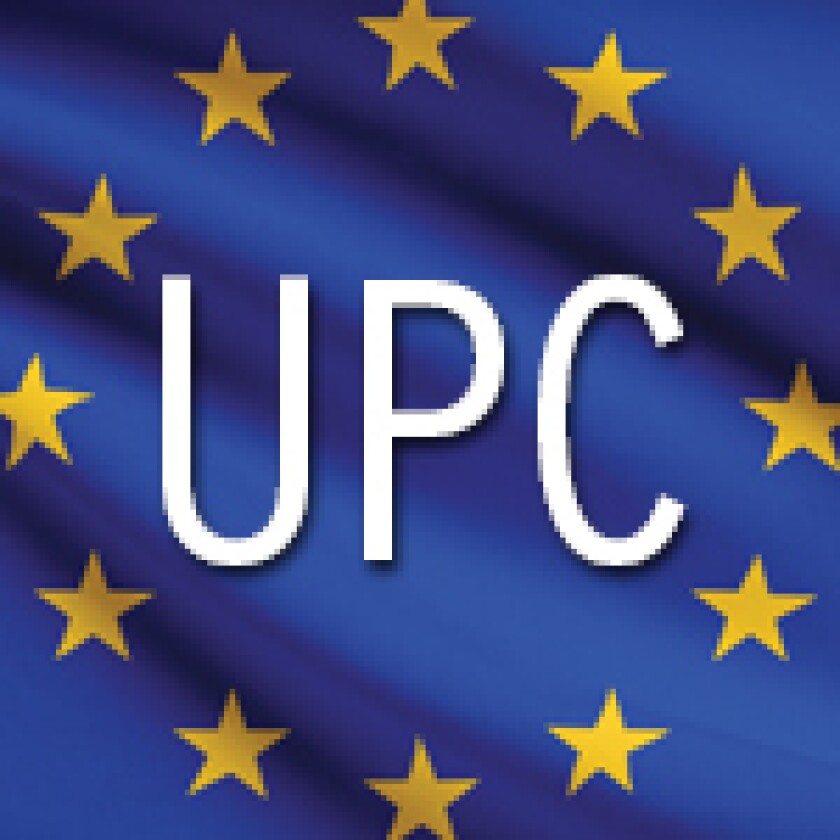As if the road were not bumpy enough already for the Unified Patent Court (UPC), last week the Hungarian Constitutional Court declared the Unified Patent Court Agreement (UPCA) incompatible with Hungary’s Fundamental Act. The motion for the interpretation of the Fundamental Act by the Constitutional Court was submitted by the Hungarian government in July 2017. The Constitutional Court’s decision was published approximately one year later on June 29 2018, following multiple prior occasions where the body had the question of the UPCA on its session agenda.
Sovereignty

Based on the questions submitted by the government, the Court examined two essential issues: firstly, whether enhanced cooperation and a treaty concluded in such a framework is part of EU law under the EU transfer of sovereignty clause (Article E paragraphs 2 and 4 of the Fundamental Act) and secondly, whether it is compatible with the constitution as an international treaty (Article Q).
In the context of Article E, the EU transfer of sovereignty clause, the Court invoked one of its earlier decisions from 2012, dealing with the Treaty on Stability, Coordination and Governance in the Economic and Monetary Union (TSCG). The Court stated that, just like the UPCA, the TSCG agreement is not an EU act, but open to EU member states only. The Court confirmed the principle declared in that case, according to which any agreement which would result in the further transfer of Hungary’s sovereignty via the joint exercising of constitutional competence through the EU institutions requires a qualified majority approval in Parliament. This applies not only to the founding treaties and their amendments, but also to any agreement in the elaboration of which Hungary is involved as a member state.
Stressing that it is the responsibility of the government and Parliament to decide whether an agreement belongs under the scope of Article E, the Court noted the principle of presumed reservation of sovereignty, a principle covered in its earlier decisions. According to this, by joining the EU, Hungary transferred its sovereignty to the EU institutions only in part. Reservation of sovereignty shall be presumed regarding additional rights, the transfer or waiver of which was not identified in the founding treaties. As long as an agreement concluded by the member states does not become acquis communautaire (i.e. EU law), it shall be construed as an international agreement (presumed reservation of sovereignty).
EU law or international law?
The Court established that enhanced cooperation displays a unique character when it comes to fitting it into the category of either EU law or international law. The act enabling enhanced cooperation and its execution measures are EU instruments. However, the question remains whether an agreement concluded by the participating member states in the framework of enhanced cooperation – such as the UPCA – is also held to be EU law, or whether such agreements remain outside this scope, i.e. in the terrain of international agreements.
The Constitutional Court emphasised that it is not competent to decide this question regarding the UPCA specifically, yet the decision highlights that even though agreements entered into by Hungary in its capacity as an EU member state, including enhanced cooperation treaties, serve the purpose of strengthening integration, a distinction must be made between cooperation that merely executes competences that have already been specified in the founding treaties, and cooperation that exceeds this scope in terms of institutionalisation.
Whenever an international agreement establishes an institution that is not part of the EU institutional structure, but which exercises public power and makes decisions affecting member states, the government preparing the act for such an agreement shall examine whether the competence of the EU to establish that institution has already been defined in the founding treaties. If it has, then the given enhanced cooperation belongs under the scope of the EU sovereignty clause; if it has not, then it should be construed as an international agreement.
Following this, the Court made reference to the CJEU’s judgment in C- 146/13 Kingdom of Spain v European Parliament and Council of the European Union. The Court noted that in this case Hungary acted in support of the Parliament and the Council. The Court drew attention to paragraph 101 of the judgment, quoting “Court [CJEU] does not have jurisdiction to rule on the lawfulness of an international agreement concluded by Member States” as the reason for rejecting Spain’s petition. This, in the Constitutional Court’s view, implies that the CJEU has already formulated an opinion on the legal nature of the UPCA.
Compatibility with the Fundamental Act
Looking at the compatibility of the UPCA as an international agreement with the Fundamental Act (Article Q), the court recognised that the UPC would apply not only EU law but also Hungarian law, and it would supplement the structure of national courts in a way that would exclude its decisions from the national judicial review system, including the possibility of the Constitutional Court’s constitutional review. Quoting Articles 24 and 25 of the Fundamental Act which ensure constitutional review of judicial decisions and the competence of the Hungarian courts in civil law disputes, the Court observed that the jurisdictions of international courts or tribunals typically relate to questions of international or EU law.
However, the Fundamental Act allows no international exceptions from the competence of Hungarian courts in private civil law disputes, and from the possibility of constitutional review of those. International courts or tribunals mostly represent a supplementary judicial remedy, but a specialised court would mean that certain types of proceedings are completely extracted from the Hungarian judicial system, including basic cases and appeals. This has no supporting basis within the Fundamental Act (only alternative dispute resolution does), hence the proclamation of the UPCA agreement being incompatible with the current wording of the Fundamental Act.
The analysis of the Court leads to the conclusion that the ratification of the UPCA is incompatible with the Fundamental Act both under the EU transfer of sovereignty clause (Article E) and under the recognition of international agreements (Article Q). Therefore, it follows that there is no available constitutional basis for ratifying the UPCA in Hungary at the moment.
Impact of the Court’s analysis and solution
It seems that the Constitutional Court took a rather cautious approach not only towards the UPCA, but also in a broader sense regarding all agreements concluded by Hungary as an EU member state. The only agreements that can be ratified by Parliament with simple majority are those which merely execute competences already transferred in the founding treaties without involving further transfer of constitutional competences.
Any treaty signed by Hungary as an EU member state which goes beyond the competences clearly defined in the founding treaties, including those which aim to set up institutions, must be proclaimed by a two-thirds majority, even if their bases may be identified within the Fundamental Act. In the absence of such roots, the agreement remains a regular international agreement which will not affect the internal sovereignty of the state in the absence of a constitutional basis for that. If an international agreement – such as the UPCA – is found incompatible with the Fundamental Act due to constitutional conflict it may not be proclaimed.
However, the Constitutional Court also suggests that this deficiency can be rectified either by making reservations in relation to the agreement – if applicable – or by amending the Fundamental Act in such a way that the constitutional conflict would be eliminated. In the present case, the incompatibility lies in the absence of exceptions allowed in the Hungarian judicial system’s competence in private disputes and the only way of eliminating it is, in line with the decision, the amendment of the Fundamental Act by majority support in Parliament. However, introducing a constitutional basis into the Fundamental Act, which would allow in the present case ratification of the UPC, certainly should be considered from the point of view of potentially applying it to other agreements in the future.
The first task of the government – as dictated by the Court – is to examine if the UPCA has any roots in the founding treaties. However, there are doubts whether the government could come to an affirmative conclusion given that the reference of the Court to case C-146/13 seems to clearly indicate that the UPCA is outside the scope of Article E. Even if the UPCA were declared to fall within the scope of Article E, it is likely that the adoption of the agreement would require a two-thirds majority in Parliament on the grounds of transferring additional sovereignty to the UPC. The same two-thirds majority is required for the amendment of the Fundamental Act, which seems to be the likely direction the government can take if it wishes to eliminate the constitutional conflict.
Any appetite for action?
It is too early to predict the government’s approach to the question of amending the Fundamental Act, as well as the potential timeline. However, what is certain is that Hungary’s ratification of the UPCA will suffer further delay. While the undertaking of the training centre of the UPC and the support of the EU institutions against Spain represent commitment on the government side, in a similar manner to other countries in the region (for example, Poland, which has not signed the UPCA or Slovakia and the Czech Republic, etc. which have also not yet ratified it), it is also well known, especially after the publicly known Polish analysis on the possible effects of the UPCA, and a similar study that has become public in Hungary as well, that the UPC triggers mixed feelings in the IP community in these countries.
As the current Hungarian government has a two-thirds majority in Parliament, and the Fundamental Act, which was adopted by the Hungarian Parliament in 2011 and came into effect in 2012, has already been amended quite a few times, there seems to be no need to seek widespread political consensus in connection with this matter. However, amending the Fundamental Act for the sake of the UPCA, but obviously with an eye on potential similar situations which may fall under the scope of such an amendment, gives the government a complex legal task and a margin of political manoeuvre regarding the ratification of the UPCA. Though the Constitutional Court’s decision will undeniably cause delay, it is not necessarily a dead end for the UPCA in Hungary.










